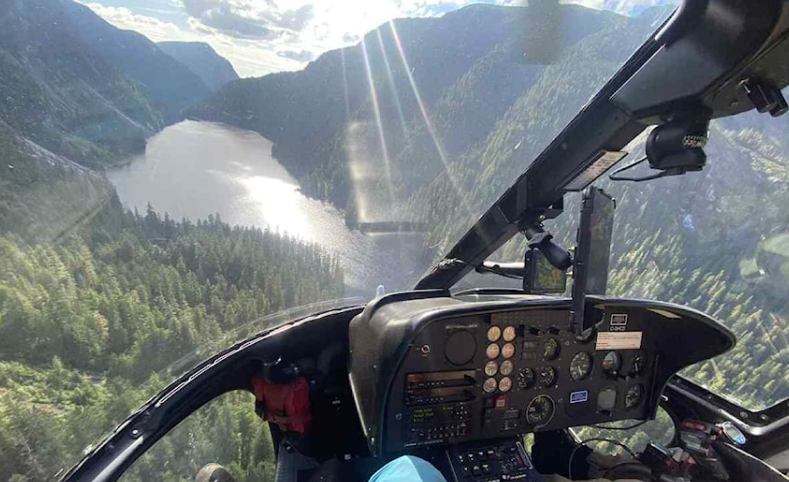A hunter is lucky to be alive after falling nearly 300 feet in a remote area near Lachmach Lake in northern British Columbia. The dramatic rescue took place on August 2, when emergency services responded to a distress call from the backcountry.
Seven members from Prince Rupert Ground Search and Rescue (PRGSAR), along with three volunteers from Terrace Search and Rescue, took part in the mission. They were called in by BC Emergency Health Services to help two hunters stranded in dangerous terrain.
One of the hunters had tumbled down a steep slope and suffered serious injuries to his lower legs. The accident occurred in a rugged and isolated part of the province, making a fast and coordinated response essential.
Fortunately, the hunters had brought a satellite SOS device known as inReach. This tool allowed them to send an emergency signal with their exact location. Without this, the rescue team said, the outcome might have been much worse.
PRGSAR highlighted the importance of using reliable communication tools when traveling in remote areas. The terrain near Lachmach Lake is difficult to reach, with limited access for emergency teams. The satellite device helped speed up the rescue and ensured the injured man received care quickly.
Rescuers reached the site with support from Canadian Helicopters, who responded swiftly to the emergency call. The helicopter team helped transport the rescue crews and later carried the injured hunter to safety.
The rescue team shared a message urging hikers, hunters, and other outdoor enthusiasts to always carry proper safety gear. They stressed that tools like satellite messengers can make the difference between life and death when accidents happen far from help.
“This event reminds everyone that being prepared is key when exploring the backcountry,” the team noted. “Even experienced outdoor lovers can face sudden dangers, and having the right equipment can save lives.”
Lachmach Lake, located in a remote area of northern British Columbia, is a popular spot for outdoor adventures. But like many wild areas in the province, it poses serious risks for those without proper gear or communication tools.
This incident is the latest in a growing number of rescues involving satellite SOS technology. With more people exploring remote areas, rescue teams are urging the public to be more prepared and carry devices that can help in emergencies.
The rescued hunter is now recovering after receiving medical help. Thanks to quick action, teamwork, and the use of modern technology, a life-threatening fall was turned into a successful rescue.
Authorities continue to advise anyone heading into remote parts of British Columbia to inform someone of their plans, bring a first aid kit, and carry a way to call for help—even without cell service.

